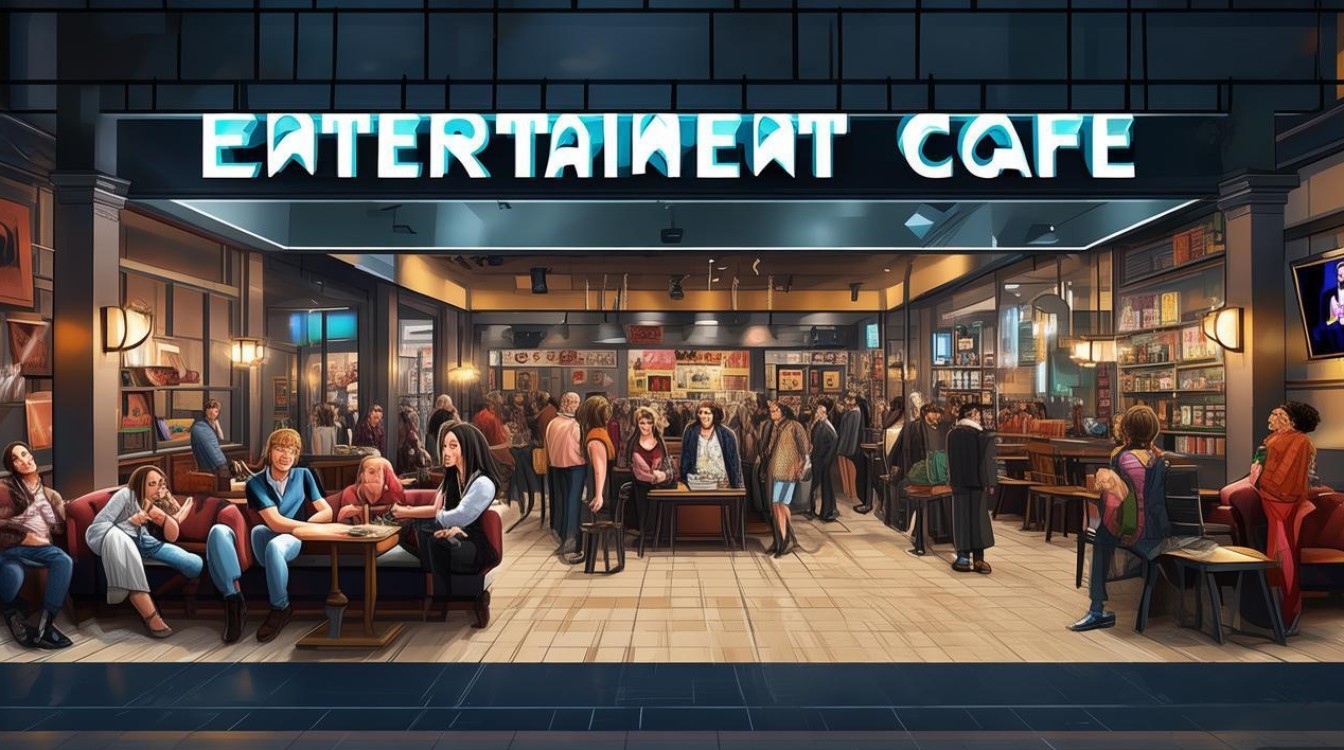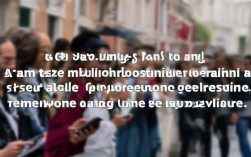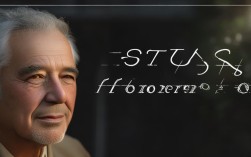在雅思口语考试中,“entertainment”是一个高频且贴近生活的话题,涵盖了电影、音乐、阅读、体育、游戏等多个领域,无论是Part 1的基础提问,还是Part 2的个人经历描述,亦或是Part 3的深度讨论,考生都需要围绕“entertainment”展开有逻辑、有细节、有个人见解的表达,本文将从雅思口语的角度出发,系统梳理与“entertainment”相关的核心词汇、高频话题、答题策略及实用范例,帮助考生提升在该话题上的表现。

雅思口语中“entertainment”的核心话题范围
雅思口语对“entertainment”的考察并非泛泛而谈,而是聚焦于个人体验、社会现象及文化差异,根据历年真题和高频考点,其核心话题可分为以下几类:
影视娱乐
电影、电视剧、纪录片是最常见的子话题,考官可能询问:
- 喜欢的电影类型(如动作片、喜剧片、科幻片)及原因;
- 最近观看的一部电影及其感受;
- 流行影视作品对社会的影响(如传播文化、反映价值观)。
音乐与表演艺术
音乐、演唱会、戏剧、舞蹈等均属此类,常见问题包括:
- 日常听音乐的习惯(类型、场合、平台);
- 对现场表演(如音乐会、话剧)的看法;
- 音乐在生活中的作用(放松情绪、缓解压力、社交媒介)。
阅读与书籍
尽管数字化时代下纸质书阅读率下降,但“books”仍是雅思口语的重要考点,问题可能涉及:
- 喜欢的书籍类型(小说、传记、科普读物);
- 阅读习惯(纸质书vs电子书、阅读时间);
- 阅读对个人能力(如语言、思维)的提升作用。
体育与户外活动
体育赛事、健身、户外娱乐(如露营、徒步)等话题也常出现。
- 喜欢的运动及原因;
- 关注的体育赛事(如奥运会、世界杯);
- 体育运动对个人健康和社会凝聚力的意义。
游戏与新兴娱乐
随着科技发展,电子游戏、短视频、直播等新兴娱乐形式逐渐成为考点,考官可能探讨:
- 对电子游戏的看法(利弊、适龄性);
- 社交媒体对娱乐方式的影响;
- 未来娱乐形式的发展趋势(如VR/AR技术)。
高频词汇与表达积累
在口语表达中,精准且丰富的词汇能显著提升分数,以下分类整理与“entertainment”相关的高频词汇及短语:
影视娱乐
- 类型:action movie(动作片)、comedy(喜剧)、romance(爱情片)、sci-fi(科幻片)、documentary(纪录片)、animated film(动画片)
- 动词:watch a movie(看电影)、go to the cinema(去电影院)、stream online(在线观看)、marathon a TV series(刷剧)
- 形容词:engaging(引人入胜的)、thought-provoking(发人深省的)、visually stunning(视觉效果震撼的)、predictable(可预测的)
音乐与表演
- 类型:pop music(流行音乐)、classical music(古典音乐)、rock(摇滚)、jazz(爵士乐)、folk music(民谣)、opera(歌剧)
- 动词:listen to music(听音乐)、attend a concert(参加演唱会)、play an instrument(演奏乐器)、sing along(跟唱)
- 形容词:soothing(舒缓的)、energetic(充满活力的)、melodic(旋律优美的)、uplifting(令人振奋的)
阅读与书籍
- 类型:novel(小说)、biography(传记)、self-help book(自助类书籍)、bestseller(畅销书)、e-book(电子书)
- 动词:read a book(读书)、browse through a bookstore(逛书店)、flip through the pages(翻阅)、get lost in a story(沉浸于故事中)
- 形容词:captivating(迷人的)、informative(信息丰富的)、well-written(文笔优美的)、tedious(枯燥乏味的)
体育与户外活动
- 类型:football(足球)、basketball(篮球)、hiking(徒步)、camping(露营)、yoga(瑜伽)、skating(滑冰)
- 动词:play sports(做运动)、work out(健身)、go for a run(跑步)、join a sports team(加入运动队)
- 形容词:invigorating(提神的)、challenging(有挑战性的)、relaxing(放松的)、competitive(竞技性的)
分话题答题策略与范例
针对不同子话题,考生需采用不同的答题思路,结合个人经历和具体细节,避免空泛回答,以下以“影视娱乐”和“音乐”为例,提供答题策略及范例。
影视娱乐:如何描述喜欢的电影?
策略:
- 点明类型:直接说明喜欢的电影类型(如科幻片);
- 举例说明:提及具体电影名称(如《星际穿越》);
- 阐述原因:结合电影元素(剧情、特效、主题)和个人感受(如“探讨时间与亲情”);
- 补充细节:描述观影经历(如“和家人一起看,多次重温”)。
范例:
“I’m a huge fan of sci-fi movies, and if I had to pick a favorite, it would be Interstellar. What I love most about this film is its unique blend of stunning visuals and a deeply moving storyline. It not only showcases advanced space technology but also explores the profound bond between a father and daughter, which really resonates with me. I first watched it in the cinema with my dad when it was released, and we were both blown away by the plot twists. Even now, I rewatch it every year—it never gets old.”
音乐:如何回答“你喜欢什么类型的音乐?”
策略:
- 直接回答:明确音乐类型(如爵士乐);
- 解释原因:说明吸引人的特点(如“即兴演奏的灵活性”“放松的氛围”);
- 个人关联:分享与音乐的场景(如“学习时听”“周末放松”);
- 延伸观点:提及对音乐家的欣赏(如“Miles Davis的创造力”)。
范例:
“I’m particularly drawn to jazz music. There’s something about its improvisational nature and soulful melodies that instantly calms me down. Unlike pop songs with fixed structures, jazz allows musicians to express their emotions freely, which I find incredibly inspiring. For example, when I’m studying or feeling stressed, I often put on some Miles Davis—his trumpet solos feel like a conversation, and they help me focus. I also had the chance to listen to a live jazz band in a small café last year, and the intimate atmosphere made me appreciate this genre even more.”
娱乐话题的社会文化视角(Part 3 高阶答题)
在Part 3中,考官常要求考生就“entertainment”相关现象发表深度看法,此时需结合社会、文化、科技等角度,展现辩证思维,以下以“传统娱乐与现代娱乐的对比”为例:
问题:Do you think traditional entertainment forms, like folk music or theater, are still popular today?
参考回答:
“While modern entertainment options like streaming platforms and social media have dominated people’s leisure time, traditional forms like folk music and theater still hold a special place, though their popularity has evolved. On one hand, traditional entertainment carries cultural heritage—for instance, Peking Opera in China or flamenco in Spain not only showcases unique artistic skills but also preserves historical stories and values. Many people, especially the older generation, still attend live performances to connect with their roots. On the other hand, younger generations often perceive these forms as ‘outdated’ compared to the instant gratification of digital content. However, there’s a growing trend of ‘revival’—some artists blend traditional elements with modern styles, like incorporating folk melodies into pop songs, making them more appealing to younger audiences. So, while traditional entertainment may not be as mainstream as before, it remains culturally significant and is adapting to stay relevant.”
娱乐话题的常见误区与注意事项
-
避免泛泛而谈:
错误回答:“I like movies because they are fun.”
正确做法:补充具体类型、电影名称、细节(如“I like romantic comedies because they light up my mood—Crazy Rich Asians is my favorite, with its hilarious plot and touching family story.”)。 -
不要只说“喜欢/不喜欢”:
考官更关注原因和感受,回答“不喜欢电子游戏”时,可说明原因(如“I find them too time-consuming and prefer face-to-face activities like playing basketball with friends.”)。 -
注意时态和语法的准确性:
描述过去经历用一般过去时(如“I watched Avatar last weekend”),表达习惯用一般现在时(如“I usually listen to podcasts on my way to work”)。 -
保持自然交流:
口语考试不是背诵答案,适当使用连接词(well, actually, you know)和语气词(um, er)让表达更流畅,但避免过度使用。
相关问答FAQs
问题1:在雅思口语中,当被问及“entertainment”时,是否必须谈论流行文化(如网红、短视频)?
解答:并非必须,流行文化只是“entertainment”的一个子领域,考生完全可以根据自身兴趣选择更熟悉的话题,如传统音乐、书籍、运动等,关键在于展现真实体验和深度思考,而非盲目追逐热点,如果你喜欢阅读古典文学,可以详细分享一本喜欢的小说及其对你的影响,这同样能获得高分。
问题2:如何避免在谈论“entertainment”时与其他考生回答雷同?
解答:差异化答题的核心在于“个人化细节”,当被问及“喜欢的电影”时,大多数考生可能会提到漫威电影或好莱坞大片,你可以选择一部小众但印象深刻的独立电影,并讲述一个独特的观影场景(如“在雨天的乡村小屋看的,氛围特别契合电影的主题”),结合个人经历(如“这部电影是我和爷爷一起看的,他给我讲了背后的历史故事”)也能让回答更具记忆点。











